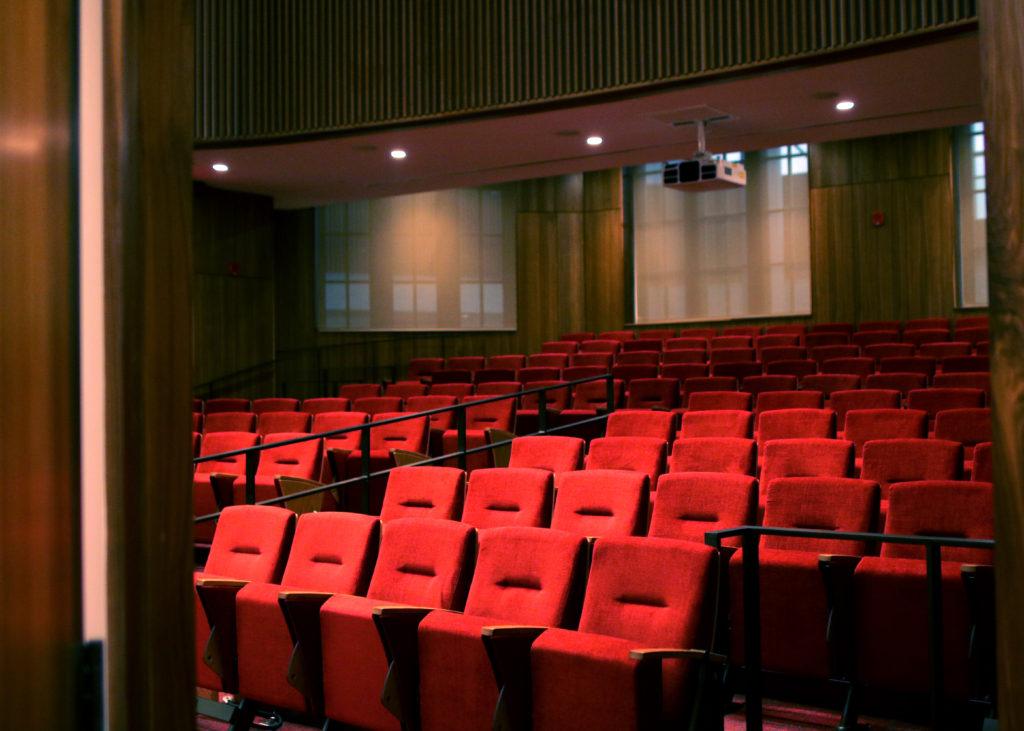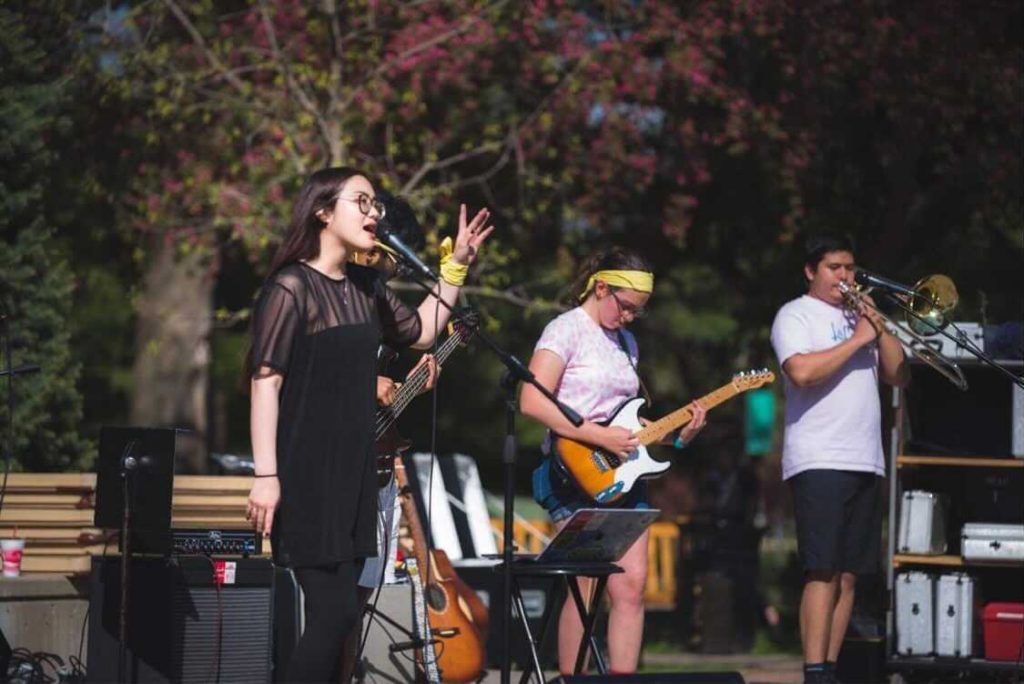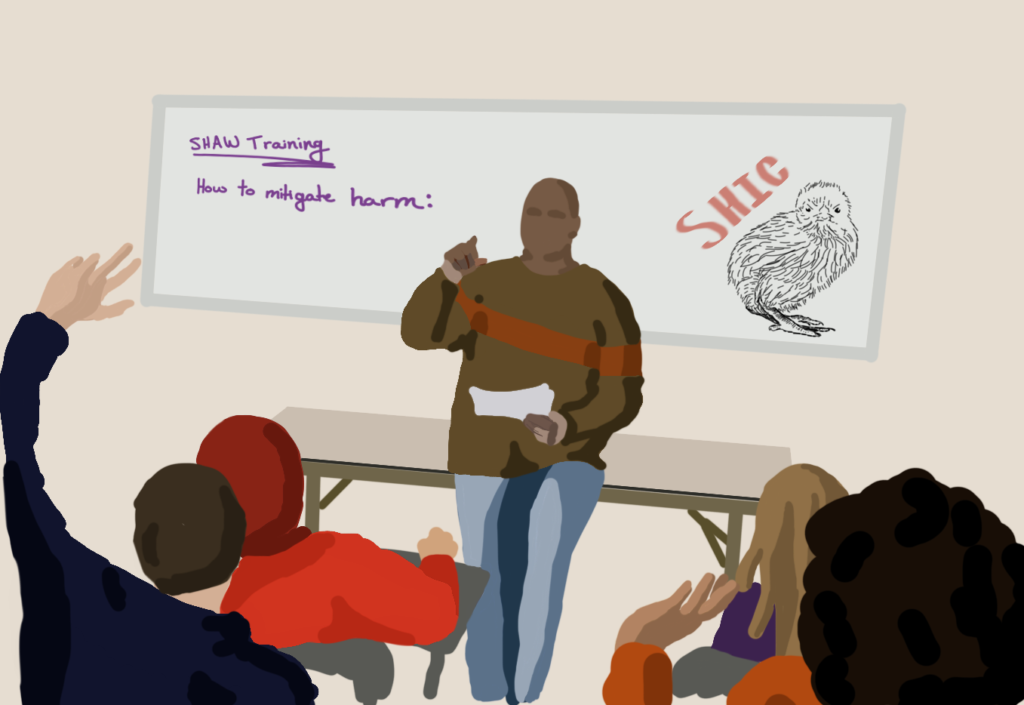After traveling from Greece to Grinnell, taking a total of four flights stopping in Munich, Washington D.C., Chicago and finally Des Moines, Inna Gjoleka `21 is back in Grinnell for the first time since March 2020, when students were forced to vacate campus.
Gjoleka says she didn’t mind being in Greece because it gave her the opportunity to spend more time with her family. Still, when the College announced fourth-year students would be invited back to campus for Spring Term 2, she was eager to return to finish out her final semester with her classmates.
“It felt more like closure this way. I didn’t want it to be my last memory of Grinnell, being sort of kicked out in March of last year because of the pandemic,” Gjoleka said.
Second- and fourth-year students have unpacked their bags and begun to settle in for the final term of the year, while most third-year students are finishing up the Spring 2 term without any time on campus this year. The S&B spoke with newly returned second- and fourth-year students as well as homebound third-year students to reflect on their feelings as they commence what could be their final mid-pandemic term.
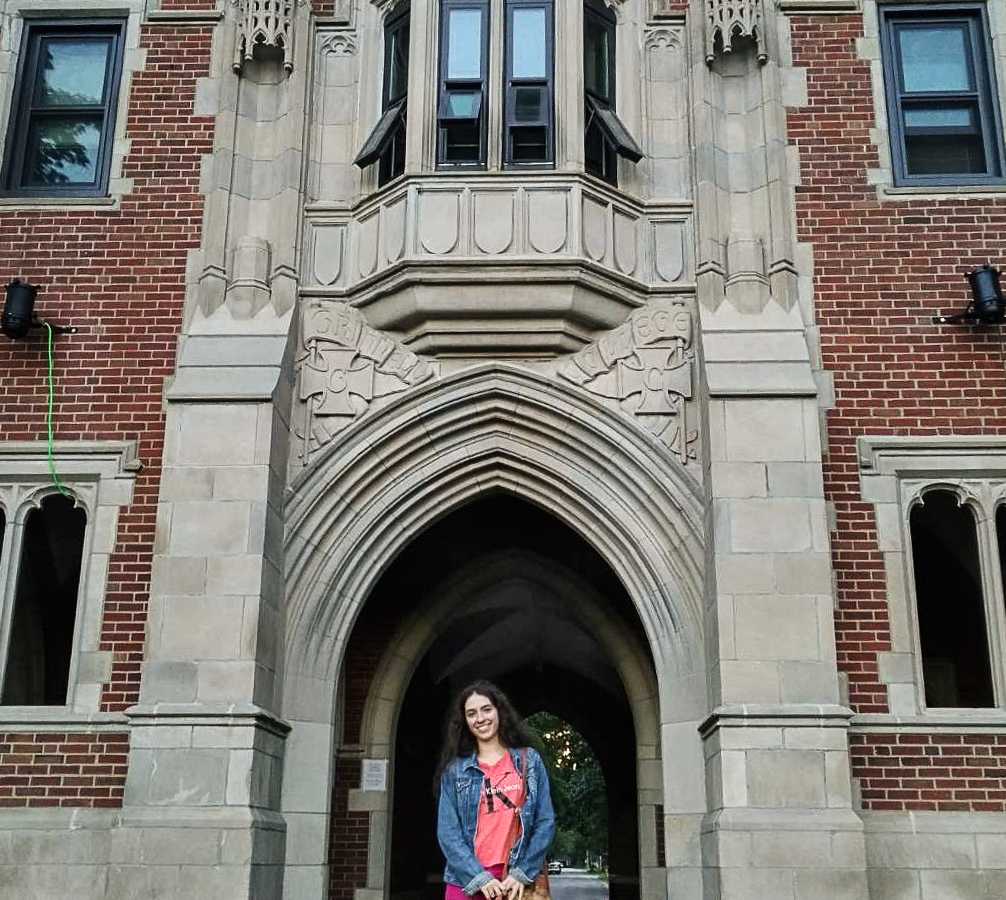
For Gjoleka, being on campus also means resolving the Wi-Fi issues and large time zone difference that she dealt with while in Greece. Instead of attending her art history seminar on Mondays from 3 a.m. to 5 a.m. EEST (Eastern European Summer Time) as she did when at home during Spring Term 1, Gjoleka is continuing the same course this term from 6 p.m. to 8 p.m. CST.
While Gjoleka enjoys being back in Grinnell and having the opportunity to see her friends, she says the experience feels very different than her past three years.
“It’s also been sad I would say, seeing how I have seen Grinnell in better times,” Gjoleka explained. “For example, I liked it when you could go outside, and everyone could hang out together. Now that we’re being restricted from that it feels like it’s not exactly like the Grinnell experience that I remember.”
Tucker Haddock `21 describes their experience returning to Grinnell as “overwhelmingly positive” despite the campus feeling emptier than it does during a normal year. Haddock’s flight back to Grinnell from their home in rural New Hampshire involved the most people they had seen in a 24-hour period in the last year. Now, back on campus for approximately two weeks, Haddock is enjoying reconnecting with their friends and having more conversations and interactions than they did since leaving Grinnell.
“To sit with someone and talk is really powerful,” Haddock said. “This has been kind of like the best week for me since I left campus.”
Like Gjoleka, Haddock said they feel that the unique circumstances of this year have caused their fourth-year experience to differ greatly from what they expected.
“I don’t feel like a fourth year in many ways,” Haddock said. “I still feel like I’m a third year. I don’t have the material communal context that would make me understand my role on campus as a fourth year. It feels a little unreal.”
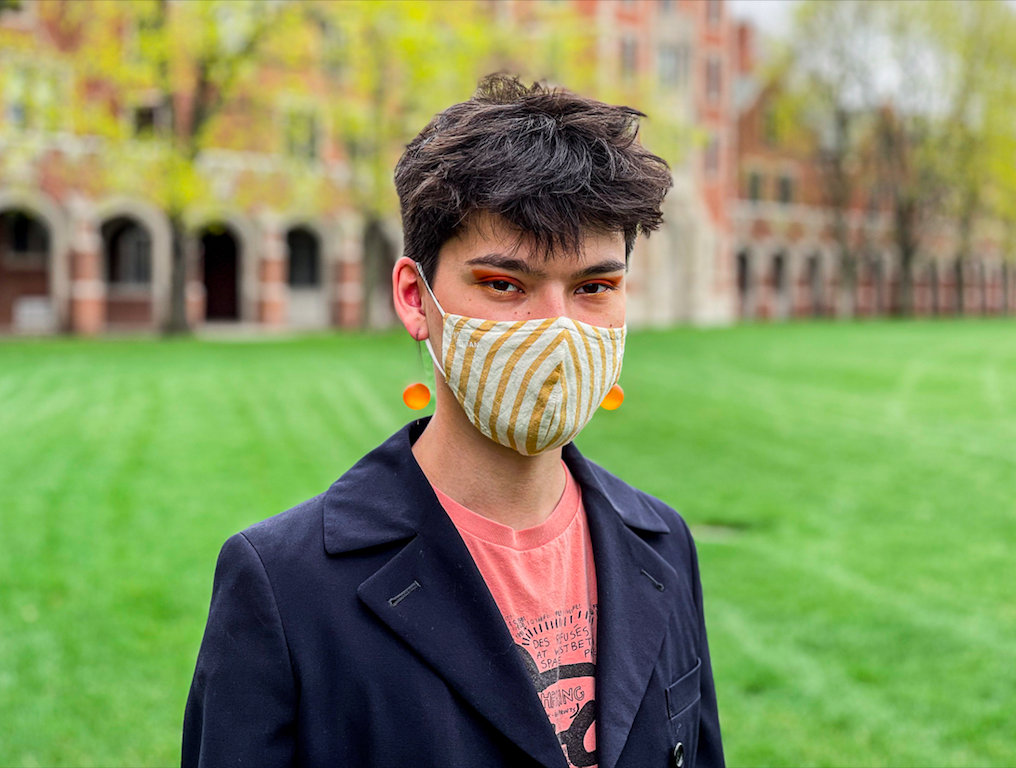
Though Haddock’s time as a student at Grinnell will come to a close this May, they do not believe Grinnell’s work dealing with the pandemic, and particularly its long-term effects on students, should cease at the end of the academic year. Specifically, Haddock is concerned the College will want to return to what they call the ‘old normal’ of excessive labor for students – a standard that Haddock feels the pandemic demonstrated was unnecessary.
“I really personally do not believe that anyone should have done any school in the last year. I think it’s a ridiculous task. It’s incredulous, it’s hilarious, it’s sad,” Haddock said.
They said that the decisions that students had to make about their education during the past year, particularly the choice to take online classes, have the potential to create unexpected issues in the coming year. “The unknown does not end with this year. There will still be paths that people will be navigating for the first time ever after I commence and so I just hope that those people will be tended to.”
Second-year students were the other group invited back to campus this term under the College’s limited residency model. After their spring semester as first-year students on campus was cut in half, second-year students who chose to return to Grinnell for Spring Term 2 are experiencing spring in Grinnell for the first time.
“I love being back on campus so much,” said Zoe Robinson `23. “The community at Grinnell – I just missed it so much.”
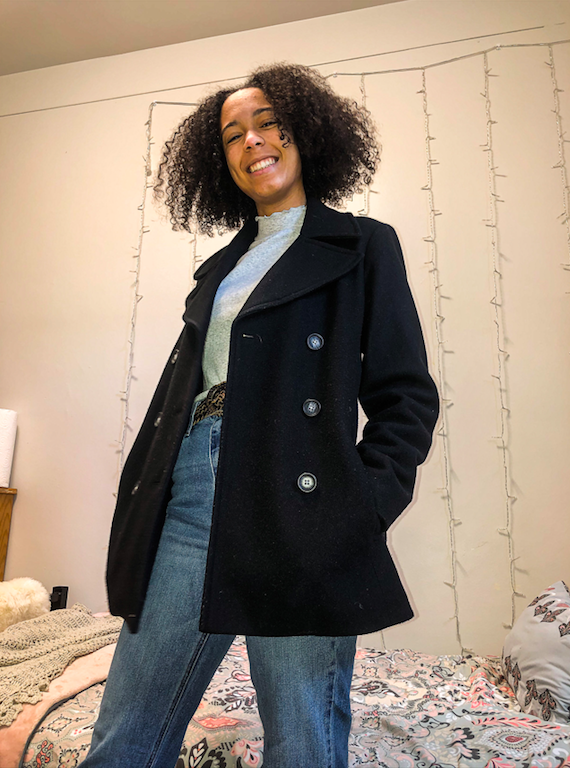
After living with her family in Nashville, Tennessee during Fall Terms 1 and 2 and then in an apartment in Newton for Spring Term 1, Robinson finds it slightly easier to take rigorous STEM classes online as a biology major while on campus as she is able to connect and study with classmates.
While Robinson is happy to be back on campus with her fellow classmates and friends, she said she feels the College could have communicated better and worked with students more in regard to what students they would invite back to campus and at what time.
“I just didn’t think the College handled it the best way they could because I remember in the fall I had no idea what was happening,” Robinson said.
Maeve Gifford `23, who also flew to Grinnell from her home in New Hampshire where she has lived these past couple months, has been enjoying the feeling of being physically back on campus.
“I kind of didn’t realize how much I missed the physical place, like when I got on campus before I saw all of my friends,” Gifford said. “It was nice to walk across Mac Field again.”
As Gifford waited in line to get vaccinated at Darby Gymnasium, she spoke with a classmate she had previously only know through virtual classes. The pair reflected on the last time they had set foot in Darby: when the gym was packed tight with students waiting to cast their vote during the Iowa caucuses.
With the College’s announcement to return to in-person learning for fall 2021, Gifford, along with countless other students, is excited at the prospect of returning to a more normal campus life and experience.
“I’m looking forward to being able to see people outside of my scurry again, and kind of socializing with a larger group will be great,” Gifford explained. “Being able to just pop into a professor’s office and just say ‘Hi’ and talk to them about something is also something I really liked doing pre-pandemic and that will be nice to have again.”
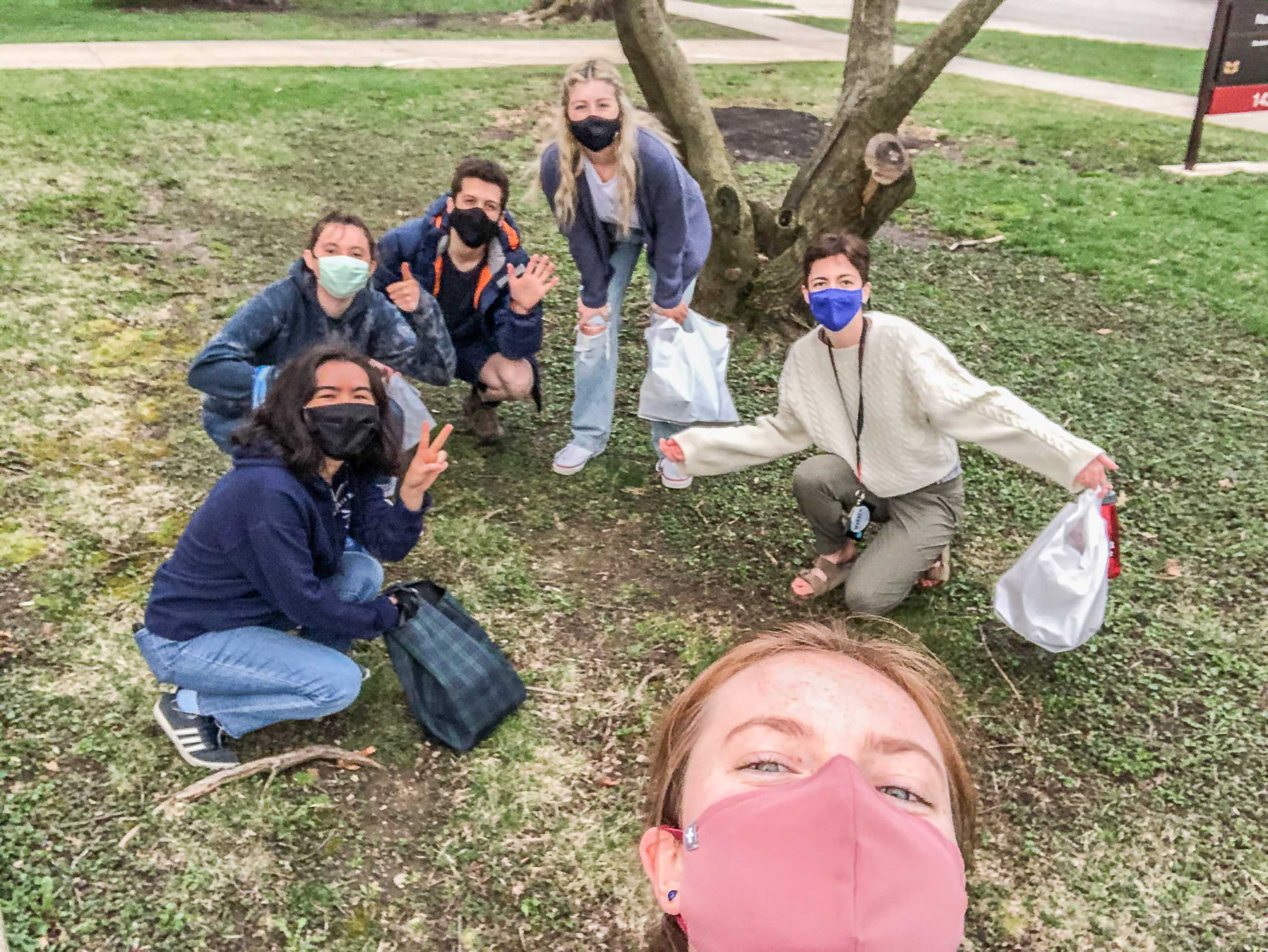
Third-year students, who were not invited back to campus for any portion of the academic year, are experiencing a vastly different Spring Term 2.
McKenna Doherty and Lacey Blauser, both class of `22, moved into an apartment in Monona, Wisconsin in January with two other roommates after living at home with their families for both Fall Terms 1 and 2.
During the summer of 2020, Doherty originally expected that the College would invite students back to campus over the course of the year. She says being the only class eventually not invited back to campus “felt like a punch in the face.”
“It just kind of revealed the College’s priorities, which was another reason it kind of hurt,” Doherty said. “As third years, we can’t really transfer to a new school for the most part and we’re not graduating so there’s no need to have us there for a ceremony. It was clear that we we’re kind of the last priority on Grinnell’s list.”
It just really didn’t feel like it was a year at Grinnell. It felt like I was just doing online tests for a random school. -Lacey Blauser ’22
The College’s communication of plans with third-year students further exasperated Doherty and Blauser. While the choice not to bring back the Class of 2022 was announced in a campus-wide email, a more detailed explanation was only sent to the parents of third-year students, which is how Blauser found out she would not be returning to campus. Blauser felt the gravity of the decision should have been matched by more compassion through direct communication with students.
Doherty and Blauser said that the combination of being away from campus and taking online classes for more than a year has harmed both their college experience and education.
“I was grateful that I had somewhere to go when we got kicked off of campus but it really reverted me back to kind of a high school mentality,” Blauser said. “It kind of ruined the college experience for me because I felt like I’m living with my parents and my siblings and I feel exactly how I did in high school and then doing classes online and not having anything physically. It just really didn’t feel like it was a year at Grinnell. It felt like I was just doing online tests for a random school.”
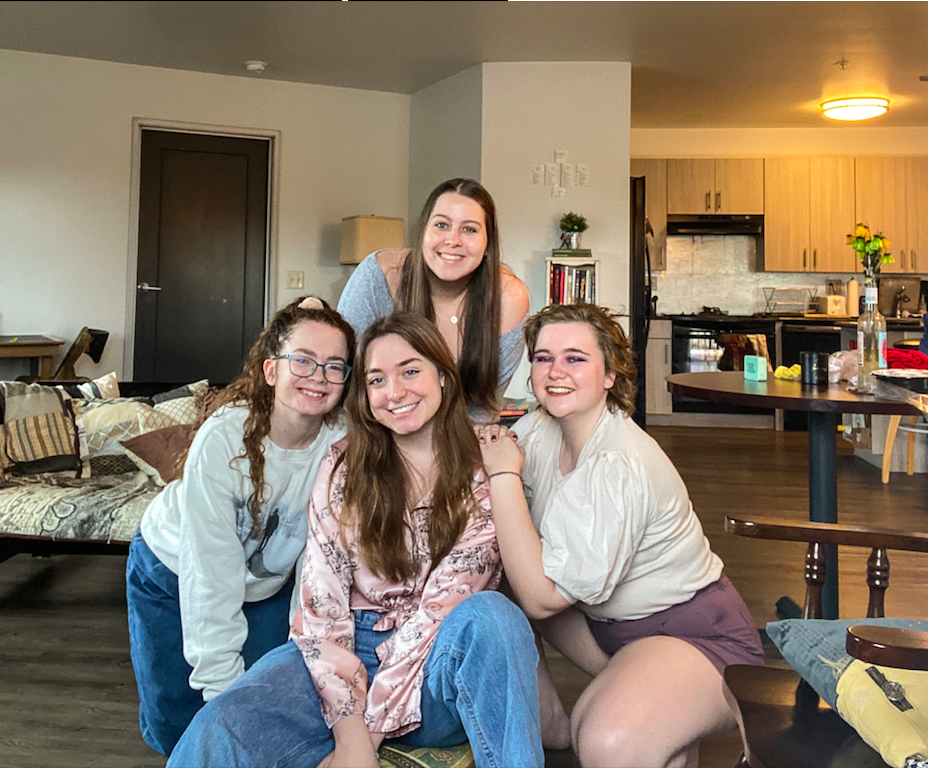
Third-year students are often enrolled in upper-level seminar classes that are essential to their major. Blauser, a biology major with a concentration in neuroscience, says being online has forced her to miss out on important work only possible to learn in person. She analogized her learning experience to the children’s online game, Poptropica. “I’ve been calling them Poptropica labs because it feels like I just click buttons and I don’t do anything and I’m not learning how to actually do things hands-on.”
Though Doherty and Blauser have managed to create a social experience with their roommates while living in Wisconsin, Doherty noted that there is no substitute for the experience of being back on campus.
“It’s just a lot of built-up frustration but it’s not at students who actually got the experience to come back,” explained Blauser. “It’s just frustration that we missed an entire year of college with, like, nothing justified.”
Some third-year students like Alexa Dolinko `22 are living in Grinnell as unapproved off-campus students. For most of the year, this has meant Dolinko did not have access to campus buildings like the Bear, and more recently the HSSC and Noyce, that have been available for approved students living on- and off-campus to use. In addition, Dolinko, as well as the majority of her class, does not have the opportunity to take in-person classes that have been offered to some students living on campus.
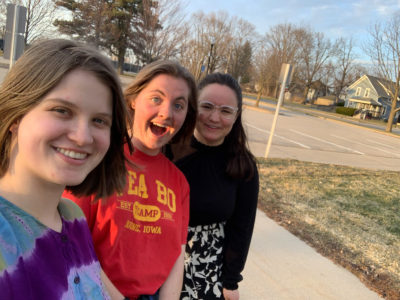
The College’s decision to invite student-athletes to campus for Spring Term 2 has compounded the sense of exclusion for some third-year students. According to the College, spring athletes were invited back to campus because the number of eligible students aligned with the College’s remaining available space and due to the fact that the group missed out on their 2020 competitive season.
“[It felt like] they said, ‘Oh you [athletes] can come back, but the junior class go fuck yourself,” said Dolinko.
Doherty agreed: “I thought that the College’s priorities were academics and not athletics. People that have labs or need studio space and they’re not even in consideration [for on-campus residence].”
Dolinko is also looking forward to a return to in-person classes on social life on campus after spending the majority of the school year in an apartment with her two roommates.
“It’s really hard to just sit in your apartment 24/7 for an entire year and try to crank out essays,” Dolinko said. “It’s honestly been a very socially isolating year which has been depressing as fuck.”


















































